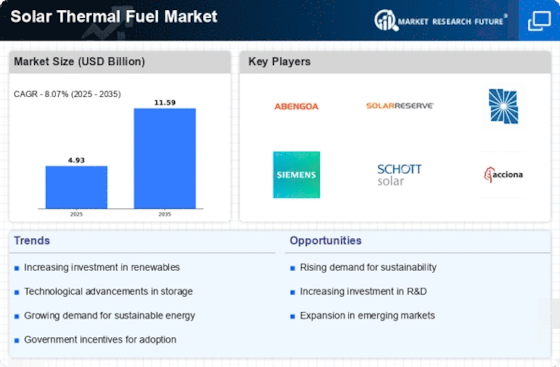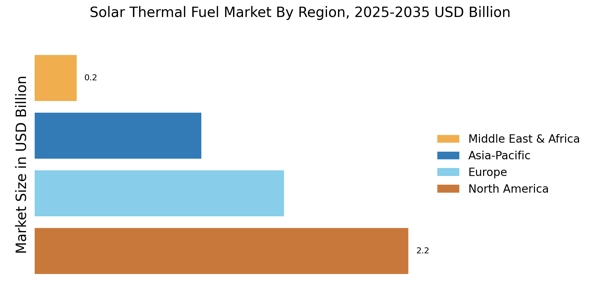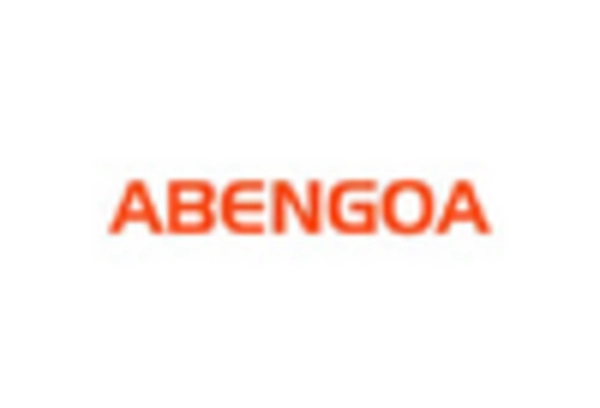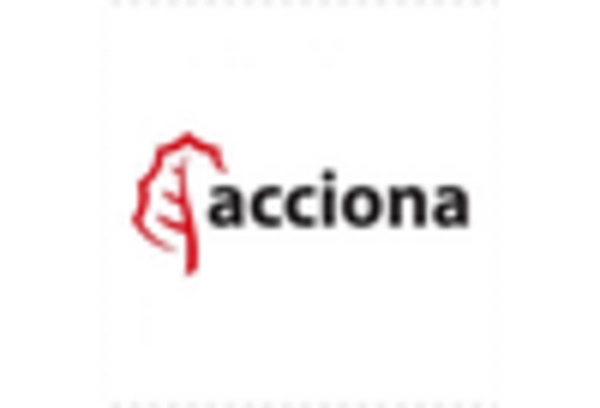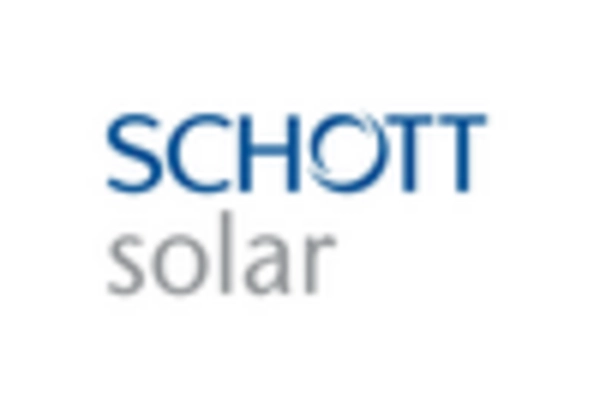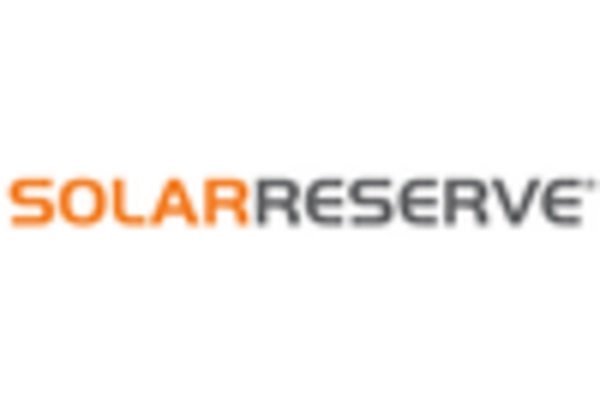Economic Viability
The Solar Thermal Fuel Market is increasingly recognized for its economic viability, particularly as the costs of solar technologies continue to decline. Recent analyses indicate that the levelized cost of solar thermal energy has decreased significantly over the past decade, making it a competitive option compared to conventional energy sources. This trend is likely to attract more investors and consumers to the market, as the financial barriers to entry diminish. Additionally, the long-term savings associated with solar thermal systems, such as reduced energy bills and maintenance costs, further enhance their appeal. As the economic landscape evolves, the Solar Thermal Fuel Market is poised to capitalize on these trends, potentially leading to widespread adoption and integration into various sectors.
Rising Energy Demand
The Solar Thermal Fuel Market is experiencing a surge in demand for energy due to increasing population and industrial activities. As urbanization accelerates, the need for sustainable energy solutions becomes more pressing. According to recent data, energy consumption is projected to rise by approximately 30% by 2040. This trend indicates a growing reliance on renewable energy sources, including solar thermal fuels, which can provide a reliable and efficient alternative to fossil fuels. The Solar Thermal Fuel Market is thus positioned to benefit from this rising demand, as it offers a sustainable solution that aligns with global energy goals. Furthermore, the transition towards cleaner energy sources is likely to drive investments in solar thermal technologies, enhancing their market presence and adoption.
Environmental Concerns
The Solar Thermal Fuel Market is increasingly influenced by heightened awareness of environmental issues. Climate change and pollution have prompted both consumers and businesses to seek cleaner energy alternatives. The use of solar thermal fuels presents a viable solution to reduce greenhouse gas emissions, as these fuels harness solar energy for heating and power generation. Recent studies indicate that transitioning to solar thermal technologies could potentially reduce carbon emissions by up to 80% compared to traditional fossil fuels. This growing environmental consciousness is likely to propel the Solar Thermal Fuel Market forward, as stakeholders prioritize sustainability in their energy choices. Consequently, the market may witness a shift in investment towards solar thermal solutions, further solidifying their role in the energy landscape.
Technological Innovations
The Solar Thermal Fuel Market is benefiting from continuous technological innovations that enhance the efficiency and effectiveness of solar thermal systems. Advances in materials science, such as the development of high-performance thermal storage solutions, are enabling better energy capture and retention. For instance, new phase change materials are being integrated into solar thermal systems, allowing for improved energy storage capabilities. This innovation is crucial, as it addresses the intermittency of solar energy, making it a more reliable option for consumers. Furthermore, the integration of smart technologies and automation in solar thermal systems is likely to optimize energy management, thereby increasing their appeal in the market. As these technologies evolve, the Solar Thermal Fuel Market is expected to expand, attracting both residential and commercial sectors.
Government Policies and Regulations
The Solar Thermal Fuel Market is significantly shaped by supportive government policies and regulations aimed at promoting renewable energy adoption. Many countries have implemented incentives such as tax credits, grants, and feed-in tariffs to encourage the use of solar thermal technologies. For example, recent legislative measures in various regions have set ambitious renewable energy targets, aiming for a substantial increase in the share of renewables in the energy mix. These policies not only stimulate investment in solar thermal projects but also create a favorable environment for research and development. As governments continue to prioritize sustainability, the Solar Thermal Fuel Market is likely to experience accelerated growth, driven by both public and private sector investments.


